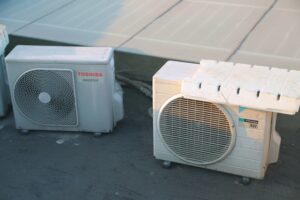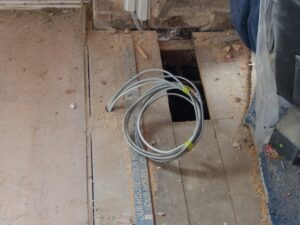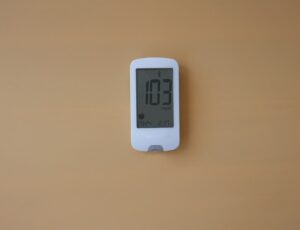If you’re concerned about the quality of the water in your home, you might be considering a home water filtration system. These systems can remove contaminants from your drinking water, making it safer and healthier for you and your family to consume. But how much does a home water filtration system cost, and what are the benefits of installing one?
The cost of a home water filtration system can vary widely depending on the type of system you choose. According to a search on the topic, reverse osmosis systems can cost between $250 and $4,000, while whole-house systems can cost between $1,128 and $3,533. The price you pay will depend on the type of system you choose, as well as factors like labor rates in your area and any additional features you may need. However, the benefits of a home water filtration system can be significant, including improved taste and odor of your water, as well as the removal of harmful contaminants like lead and chlorine.
If you’re considering a home water filtration system, our team at Excel Mechanical is the best option for HVAC and plumbing services for both residential and commercial. As professionals who strive for exceptional quality and great value, we work to provide the best possible system to meet individual needs and budget. With our expertise and commitment to customer satisfaction, you can trust us to install a home water filtration system that will provide clean, safe water for you and your family.
Understanding Water Filtration Systems
When it comes to choosing a water filtration system, it’s important to understand the different types of filters available, how they work, and their key components.
Types of Water Filters
There are several types of water filters available, including sediment filters, carbon filters, reverse osmosis systems, and UV light filters. Sediment filters are designed to remove large particles, such as sand and dirt, from the water. Carbon filters are effective at removing chlorine, bad taste, and odor from the water. Reverse osmosis systems use a membrane to remove impurities from the water, while UV light filters use ultraviolet light to kill bacteria and viruses.
How Filtration Systems Work
Water filtration systems work by removing impurities from the water. Sediment filters use a physical barrier to trap particles, while carbon filters use activated carbon to adsorb impurities. Reverse osmosis systems use a semipermeable membrane to remove impurities, and UV light filters use ultraviolet light to kill bacteria and viruses.
Key Components of Filtration Systems
The key components of water filtration systems include the filter media, the filter housing, and the plumbing connections. The filter media is the material that removes impurities from the water, while the filter housing holds the filter media in place. Plumbing connections are used to connect the filtration system to the water supply.
Factors Affecting Filtration System Costs
When it comes to purchasing a home water filtration system, it’s important to consider the various factors that can affect the cost. Here are some of the key factors to keep in mind:
System Size and Capacity
The size and capacity of the filtration system you choose will have a significant impact on the overall cost. Larger homes with more water consumption will require a larger system, which will generally be more expensive. It’s important to choose a system that is appropriately sized for your home and water usage needs to ensure optimal performance and efficiency.
Types of Contaminants
Different types of contaminants require different types of filtration systems. For example, if your water contains heavy metals, you may need a system that uses activated carbon or reverse osmosis technology. If your water contains bacteria or viruses, you may need a UV filtration system. The type of system you choose will impact the overall cost, so it’s important to have your water tested to determine what types of contaminants are present.
Additional Features and Technologies
Some filtration systems come with additional features and technologies that can impact the cost. For example, some systems may include a water softener or a pH balancer. Others may have a higher flow rate or a longer filter life. It’s important to consider these additional features when choosing a system, as they can impact the overall cost and performance.
Installation and Maintenance Considerations
Installation Process
Installing a home water filtration system can be a complex process that requires the expertise of a professional plumber. The installation process involves connecting the system to your home’s water supply and ensuring that it is properly integrated with your existing plumbing infrastructure.
Ongoing Maintenance Requirements
Once your home water filtration system is installed, it is important to keep up with ongoing maintenance requirements to ensure that it continues to function properly. This includes regular filter changes, which can vary depending on the type of system you have installed.
Replacement of Filters
Over time, the filters in your home water filtration system will need to be replaced. This is an important part of ongoing maintenance and helps to ensure that your system continues to function properly.
Overall, installing a home water filtration system requires the expertise of a professional plumber to ensure that it is properly integrated with your existing plumbing infrastructure. Ongoing maintenance requirements include regular filter changes, and our team can help you keep up with these requirements to ensure that your system continues to function properly. We offer filter replacement services to help you keep your system running smoothly, making us the best option for HVAC and plumbing services for both residential and commercial purposes.
Assessing Your Home Water Quality
Ensuring that you have safe and clean water in your home is essential to maintaining your health and well-being. Before investing in a home water filtration system, it is important to assess the quality of your water to determine the type of filtration system that best suits your needs.
Conducting a Water Test
Conducting a water test is the first step in assessing your home’s water quality. You can either purchase a water test kit or hire a professional to conduct the test for you. A water test will help you identify any contaminants, minerals, pH levels, or hardness in your water.
Understanding Water Source Variations
The quality of your water can vary depending on the source of your water. If you receive water from a municipal source, your water is already treated and may only require a basic filtration system. However, if you have well water, you may need a more advanced filtration system to remove contaminants such as bacteria, viruses, and heavy metals.
Selecting the Right Water Filtration System
When selecting a water filtration system for your home, there are a few factors to consider. First, you need to decide whether you want a whole-house or point-of-use system. Whole-house systems filter all the water in your home, while point-of-use systems only filter the water at a specific faucet or appliance.
Comparing Brands and Models
There are many brands and models of water filtration systems on the market, each with their own unique features and benefits. It’s important to do your research and compare different options before making a decision.
We offer a variety of whole-house water filtration systems from top brands like Culligan and Aquasana. Our experts can help you compare different models and determine which one is the best fit for your home and budget.
Determining the Right System for Your Home
When determining the right water filtration system for your home, there are a few key factors to consider. These include the size of your home, the number of filters needed, and the type of filtration technology used.
We work with you to determine the best possible system to meet your individual needs and budget. Our team of professionals strives for exceptional quality and value, whether you need a whole-house water filtration system or any other plumbing or HVAC service.




